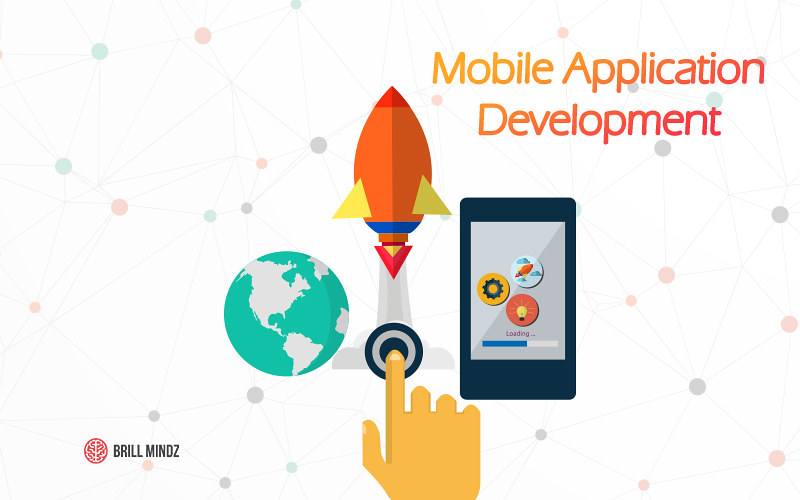We have compiled the best practices for Mobile App Developers.
Unlock your app’s potential with proven strategies. Learn the best practices for mobile app development. Elevate your skills today!
In the fast-evolving landscape of mobile app development, adhering to best practices is essential for creating successful, user-friendly, and high-performing applications. From design principles to performance optimization, security measures, and user engagement strategies, developers must navigate the considerations. This guide outlines best practices for mobile app developers that they should incorporate to ensure their creations are successful. Whether you’re a seasoned developer or just starting your app-building journey, these guidelines serve as a roadmap for delivering top suggestions for app development. Explore the key principles that contribute to the success of mobile apps and elevate your development efforts.
What is Mobile App Development?
Mobile app development is the process of creating software applications designed for mobile devices, such as smartphones and tablets. It involves a combination of programming, design, and testing to deliver functional and user-friendly applications. Developers use different programming languages and frameworks to build apps for diverse platforms, including iOS and Android. The development cycle includes planning, coding, testing, and deployment, with a focus on optimizing user experience, performance, and security. Mobile app development has become integral to the modern digital landscape, offering a wide range of applications that serve entertainment, productivity, communication, and business purposes.
Things to Know for Mobile App Developers
For aspiring mobile app developers, understanding key aspects of the development process is required.
- Firstly, a solid grasp of programming languages such as Java (for Android) or Swift (for iOS) is essential. Familiarity with cross-platform frameworks like React Native or Flutter can enhance efficiency by enabling code reuse across different platforms.
- User experience (UX) and user interface (UI) design principles are equally vital. Crafting an intuitive and visually appealing interface contributes significantly to an app’s success. Mobile developers must consider diverse screen sizes and resolutions, ensuring their apps function seamlessly on various devices.
- Knowledge of application programming interfaces (APIs) and integration techniques is important for incorporating features like geolocation, push notifications, or social media connectivity. Security awareness is essential, too, as developers must protect user data against potential vulnerabilities.
- Regular testing is necessary throughout the development lifecycle. Rigorous testing helps identify and rectify bugs, ensuring a stable and reliable application. Version control systems, like Git, facilitate collaborative development and code management.
- Finally, staying up-to-date on industry trends, attending developer communities, and continuous learning is necessary for professional growth. Mobile app development is dynamic, and a proactive approach to staying informed enhances a developer’s ability to create cutting-edge in this rapidly evolving field.
Key Tools & Technologies Employed by Mobile App Developers
Mobile app developers use a diverse set of tools. Swift is favored for iOS development, and Java/Kotlin dominates the Android scene. Cross-platform frameworks like React Native and Flutter streamline coding, allowing developers to write code once and deploy it across different platforms. APIs are pivotal in linking apps to external services, with RESTful APIs being popular for their simplicity and versatility.
Cloud computing platforms such as AWS and Firebase provide scalable storage, databases, and backend services. Real-time features are facilitated by WebSocket technology, ensuring smooth communication between the app and server. Continuous Integration (CI) tools like Jenkins or GitHub Actions automate testing and deployment processes. Additionally, Augmented Reality (AR) and Virtual Reality (VR) technologies are gaining momentum for creating immersive app experiences.
Ultimately, the technology stack chosen depends on specific project requirements, platform considerations, and the desired functionalities of the mobile application.
Some Tips on Best Practices for Mobile App Developers
- Implement best practices for mobile app development.
- Code efficiently to enhance the performance of your mobile apps.
- Prioritize user-friendly design.
- Gain insights from app development experts to improve your approach.
- Employ compelling strategies for testing your mobile apps thoroughly.
- Optimize your code using efficient techniques tailored for mobile apps.
- Stay updated on mobile app optimization practices for the year 2024.
- Consider user experience as a key factor in your mobile app development.
- Ensure error-free coding to enhance the reliability of your mobile apps.
- Implement robust security measures to protect your mobile applications.
- Conduct performance testing to identify and address potential issues.
- Pay attention to UI/UX design principles in your mobile applications.
- Optimize code for speed, focusing on performance improvement.
- Stay informed about the latest trends influencing app development.
- Dedicate time to debugging your mobile applications thoroughly.
- Embrace responsive design principles for optimal mobile experiences.
- Adhere to the mobile app development lifecycle for systematic progress.
- Prioritize accessibility features to make your apps inclusive.
- Explore emerging technologies relevant to app development.
- Manage scalability considerations in your mobile app architecture.
- Integrate cloud solutions for enhanced functionality and storage.
- Optimize your app for success with store optimization techniques.
- Leverage mobile app analytics to gain valuable insights.
- Manage your app development projects with strong project management.
- Integrate AI for enhanced functionality in your mobile apps.
- Keep an eye on trends that are shaping the future of app development.
FAQs
Which programming languages are used in mobile app development?
Swift for iOS, Java/Kotlin for Android, and cross-platform options like React Native or Flutter.
How do apps connect to external services?
Apps use APIs, with RESTful APIs being popular for their simplicity and versatility.
How can mobile app developers in Qatar enhance user experience?
Focus on intuitive design, multilingual support, and culturally relevant content for a tailored user experience.
What are the emerging trends for mobile app development in Qatar?
Trends include Arabic-language apps, local payment integrations, and innovations in healthcare and education technology.










